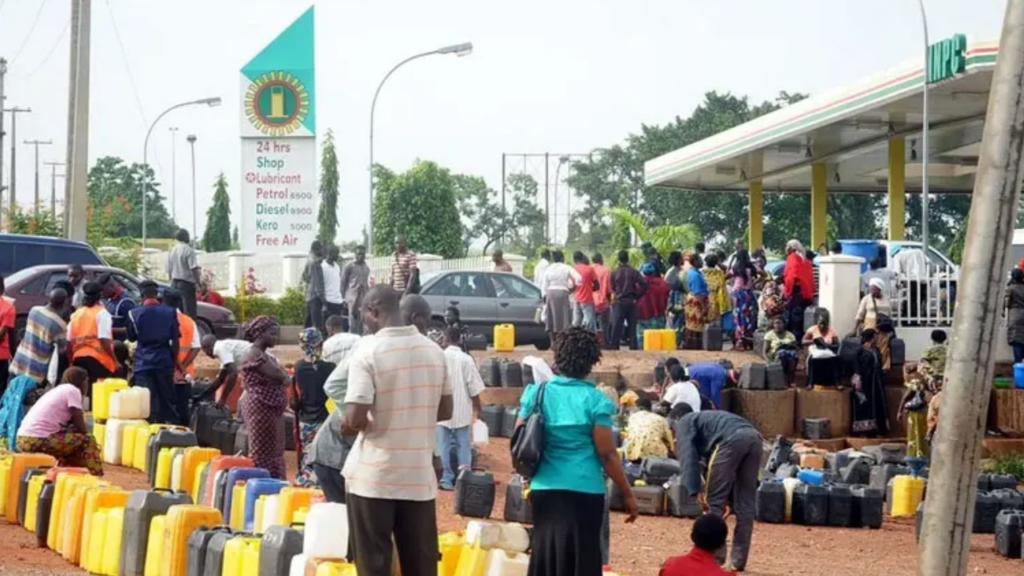Solid Minerals
India investors sell Gold over change of government policy

NEW DELHI – Worried Indian investors are selling gold, eroding prospects that a change of government policy in India will boost imports and underpin a fragile recovery in the price of the metal.
Although sales in India haven’t turned into a flood, domestic gold prices have weakened in the past week. The premium for gold in the domestic market relative to the international price has tumbled by almost a half to around $70 an ounce. Driving the sales are expectations that the newly elected Bharatiya Janata Party will slash import taxes and relax other controls that have created a shortage of gold, which could cause local prices to fall.
On Wednesday, India’s central bank slightly eased import rules for gold by allowing private trading companies to bring the precious metal into the country. Previously, only designated banks and state-run trading companies were allowed to import gold.
It isn’t clear whether the central bank’s decision was linked to the BJP’s election victory. Traders say they are expecting the incoming government to follow through with more significant steps.
“We are getting more sellers than buyers these days,” said Jitendra Kantilal Jain, proprietor of Jugraj Kantilal and Co., a large dealer in recycled gold in the western Indian city of Mumbai’s Zaveri Bazaar, the country’s largest gold market. “Most of these sellers are coming to offload their bars and coins, which they purchased a few months back.”
Jewelers are also purchasing only as much as they need in the short term, said Girish Choksi, a large bullion dealer in the western city of Ahmedabad. “We think that the prices will come down further,” he said.
Spot gold prices in India have slipped below 30,000 rupees per 10 grams and now are near 28,000 rupees ($476). Buying interest remains subdued.
“We have come here to sell about 20 grams of coins that we purchased last year. We don’t want to take any risk as prices are expected to fall further,” said 42-year-old Neha Shah, a Mumbai resident, as she waited inside a jewelry shop.
India, second only to China as a consumer of the precious metal, has huge amounts of gold in the hands of private and institutional investors. Investment purchases account for around 40% of India’s demand.
“There is a general sense that premiums will fall and people want to cash in before that,” said Vasu Acharya, director of Parker Bullions, which has a large distribution network in western India. “The outlook for gold [prices] is not very upbeat.”
India’s previous government, worried about a ballooning current-account deficit and in an attempt to stem a slide in the value of the rupee, made gold scarcer by raising the import tax on the metal to 10% from 2%, and ruling that 20% of all gold imports be re-exported as jewelry, coins or other finished products. The requirement about exports covers private trading companies as well as other importers.
Gold constitutes India’s second-largest import sector, ranking behind crude oil.
“Everybody is expecting an overhaul of policies,” said Mr. Acharya.
That prompts the question: If a shift in government policy causes the Indian gold price to fall to the international level, will local demand then pick up and support world prices?
International gold prices have risen to nearly $1300 an ounce so far this year, a gain of around 7%. The Ukraine-Russia crisis encouraged buying of gold, an asset seen as a safe investment in times of crisis.
Market fundamentals are starting to look rocky. The selling in India, and falling demand there, come at a time when Chinese demand for gold jewelry also is down. The two countries together account for half of global purchases, and the world gold supply rose 1% in the first quarter of this year, to 1048 metric tons, World Gold Council data issued Tuesday show.
Indian purchases of gold bars and coins collapsed 54% to 45 tons during the first quarter of 2014 from a year earlier, while January-March jewelry sales fell by 9% to 145.6 tons. A slump in the price of gold last year provoked heavy buying by bargain-hunters across Asia.
Potential Indian gold buyers haven’t responded so far to a 5.5% rise in the value of India’s rupee against the dollar since the start of January, including a gain of 2% since the election results were announced last week. The currency moves have made the precious metal cheaper in India.
“People are not comfortable investing in bars and coin, when the premiums are coming down,” said P.R. Somasundaram, managing director at the World Gold Council’s India office. The Council forecasts India’s 2014 gold demand will be between 900 and 1,000 tons, compared with 975 tons last year.
“I think it [gold] could show a huge comeback, depending on how the policy shapes up,” said Mr. Somasundaram, referring to potential moves by the new government.
– WALLSTREET JOURNAL
Solid Minerals
FG Fingers Foreigners Sponsoring Banditry For Illegal Mining

The Nigerian Government has threatened to come down heavily on foreigners sponsoring bandictory as a way of sustaining illegal mining activities in parts of the country.
The warning was handed down in Abuja by Minister, Solid Minerals Development, Dr Oladele Alake, while receiving a delegation of the Nigeria-China Chamber of Mines led by its National President, Dr. Olugbenga Ajala.
Details of these were contained in a statement released by Head, Press & PR, Ministry of Solid Minerals Development, Alaba Balogun over the weekend.
The statement cited, Dr Alake, thus, “The government will come down firmly on these unscrupulous foreign operators sponsoring banditry to perpetrate illegal mining: let me use this medium to appeal through you to tell those sponsors to desist or face the full wrath of the law.”
According to Dr Alake, the Ministry is committed to establishing a multi-agency task force that will end the activities of illegal miners and their collaborators.
The Minster made it clear that the FG had given illegal miners a 30-day-ultimatum to legitimise their businesses, quit Nigeria or incur the wrath of the law.
According to him, this will help “to streamline and structure the Small-Scale Artisanal Miners for maximum yield to the Federal Government.”
The delegation paid a courtesy call on the Minsiter at the Ministry’s headquarters in Abuja.
Energy
Fuel Scarcity: Govt Yet to Increase Pump Prices – NMDPRA

By Edozie Obasi-Eze
Amidst heightening uncertainties in the domestic petroleum products market characterised by scarcity and irregular pricing, the Nigerian Midstream and Downstream Petroleum Regulatory Authority (NMDPRA) has declared that there’s no intention to review pump prices upwards.
This was contained in an advisory issued by General Manager, Corporate Communications, NMDPRA, Kimchi Apollo.
He stated that the Nigerian National Petroleum Corporation Limited (NNPCL) had imported PMS with current stock levels sufficient for 34 days.
In an attempt to address panic buying and speculations which have seen price of Premium Motor Spirit (PMS) oscillate between N180-N250 in the Lagos area, Apollo assured that there was enough quantity of the product in the country already.
He said, “Consequently, marketers and the general public are advised to avoid panic buying, diversion of products and hoarding.
“In keeping with the Authority’s responsibilities as outlined in the Petroleum Industry Act (PIA), the Authority assures the public that it would continue to monitor the supply and distribution of petroleum products nationwide, especially during this holiday season.”
Solid Minerals
DIVERSIFICATION: RMAFC inspects mining activities in Ondo
The Revenue Mobilisation Allocation and Fiscal Commission (RMAFC) says it is verifying and reconciling revenue collections in the Solid Minerals Sector of the economy.
The Federal Commissioner, RMAFC, Chief Tokunbo Ajasin, stated this at a strategic meeting on the commission’s 2022 nationwide monitoring of revenue collections of the Nigerian mining sector in Akure on Monday at the state Ministry of Finance Conference Hall.
This is contained in a statement by Mr Banjo Egunjobi, the Head of Media Unit of the ministry.
Read also>>>Darkness Envelopes Nigeria as National Grid Collapses For 7th time in 2022
Ajasin said 25 enterprises exported minerals in 2019 with no record of royalty payment, while about N2.76 billion outstanding liabilities had been established against 2,119 mining companies nationwide.
He said that this arose from failure to pay the Annual Service Fees for their company titles.
According to the Federal Commissioner, the Commission is empowered to monitor all revenue accruals from the extractive industries to ensure prompt and accurate remittances to the Federation Accounts.
He added that the monitoring was a follow-up on the 2016 exercise to assess the challenges hindering optimum revenue collection from the sector.
Ajasin said the monitoring comprised revenue collections and the activities of miners in the state.
According to him, the major issues of concern to the Commission is the Nigeria Extractive Industries Transparent Initiative NEITI 2020 report.
He added that the number of defaulting companies would be determined after engagements.
“There is also the issue of underpayment of royalty by 25 enterprises that exported minerals in 2019 with no record of royalty payments.
“These companies owe the government about N482 million in overdue royalty.
He said the 2,119 mining companies’ default nationwide arose from the failure to pay the annual service fees for their respective mineral titles.
Ajasin also said the Commission’s mandate in the extractive sector was to recover the established liabilities owed to the Federation Account.
He, therefore, urged participants to explore the opportunities in the state to harness the revenue potential in the Solid Minerals sector to boost Internally Generated Revenue.
The State Commissioner for Finance, Mr Wale Akinterinwa, stated that the process of allocating the 13 per cent derivation on crude oil paid to the states across the federation depended on the effective monitoring of revenue and the collection of established liabilities from mineral resources.
Akinterinwa noted that the cooperation given by the state Ministry of Finance, Ministry of Energy, Mines and Mineral Resources and others to enforce payment of the reported liabilities would assist in fulfilling the objectives of the exercise and a means of engaging some Strategic Revenue Drive for the state.
The commissioner said the present administration of Gov. Oluwarotimi Akeredolu would do everything at its disposal to facilitate the collection of revenue as listed in the NEITI Audit Report 2022.
He, therefore, urged stakeholders to accord full cooperation to the RMAFC team and be committed to achieving the desired goal.
Also the Permanent Secretary of the Ministry, Rev. Jide Ekpobomini, said sourcing for a quick alternative to all income was necessary and could not be overemphasised.
He said government revenue inflows would surely be boosted if the sector was vigorously harnessed.
Also his counterpart from Ministry of Energy, Mines and Mineral Resources, Mr Wemimo Ogunsanmi, said the state government had initiated a strategic mineral development plan to exploit the solid minerals sector, hence the establishment of the ministry.








